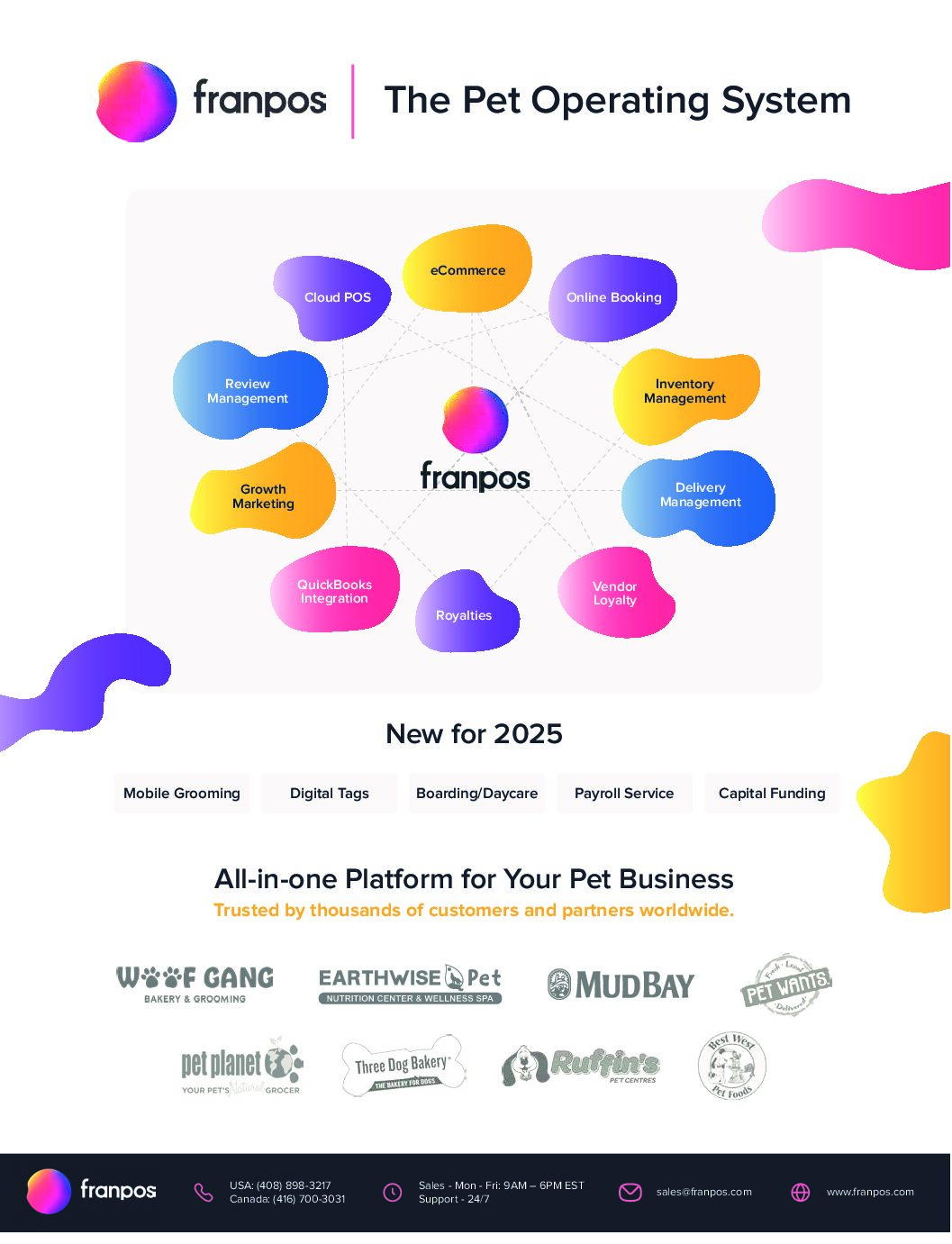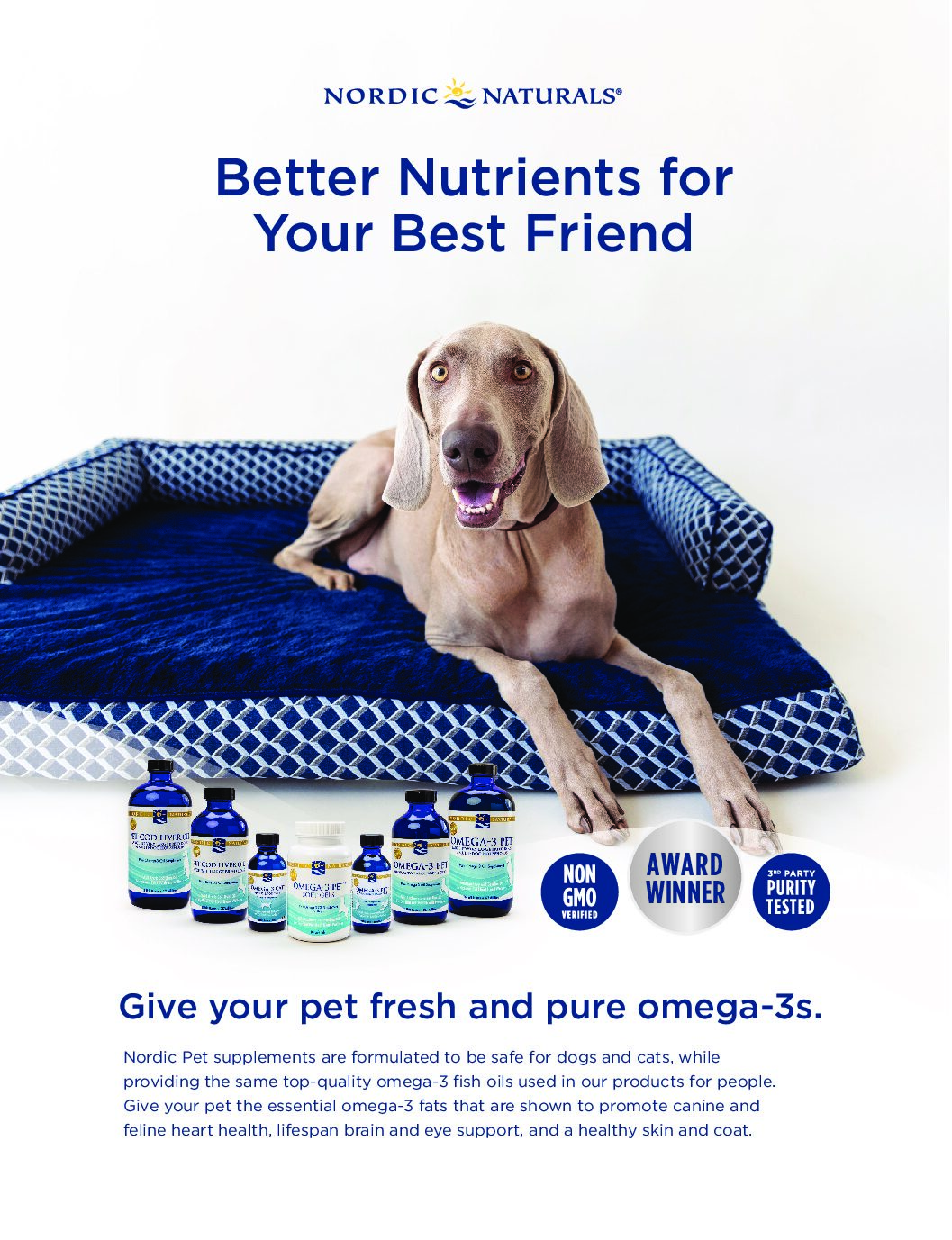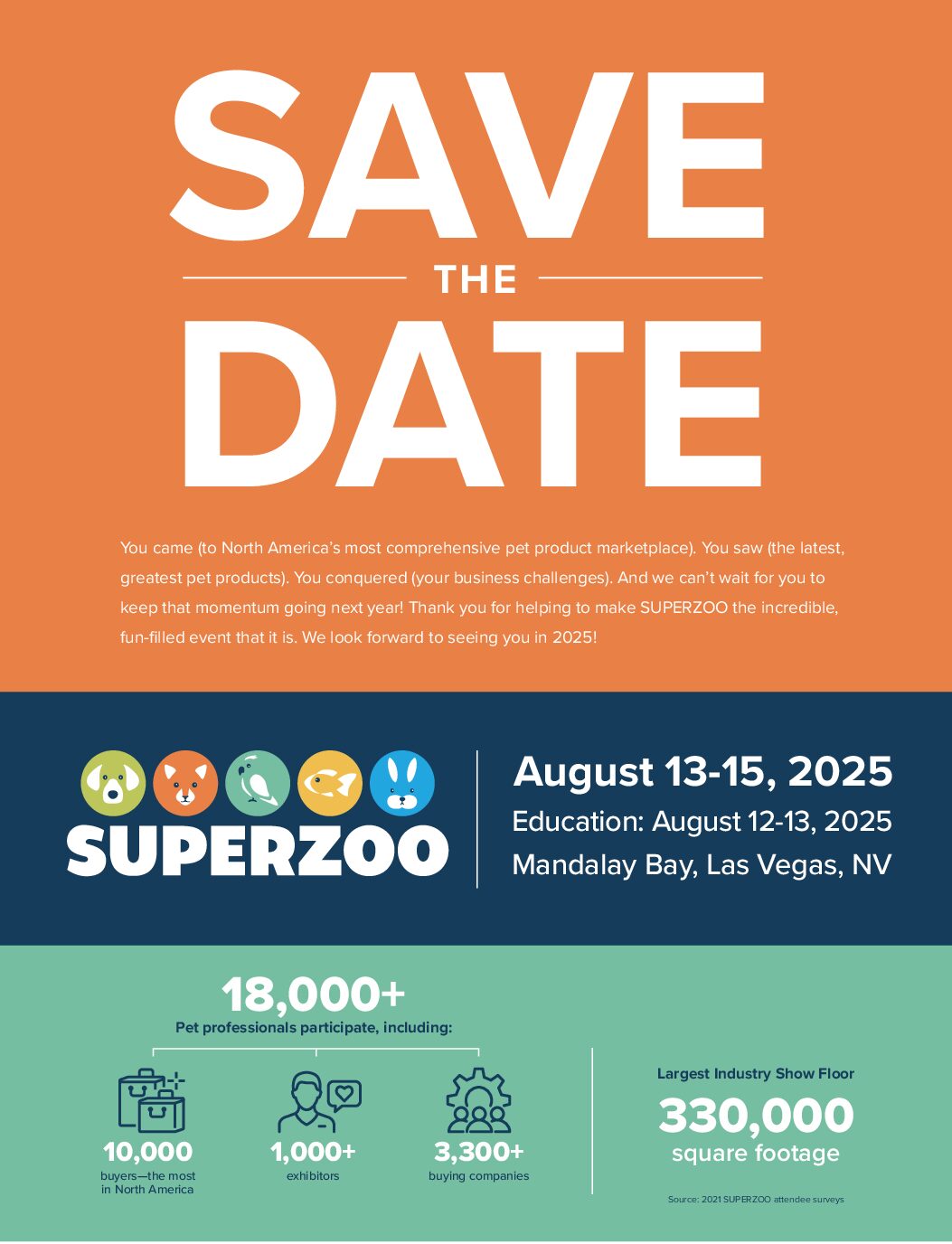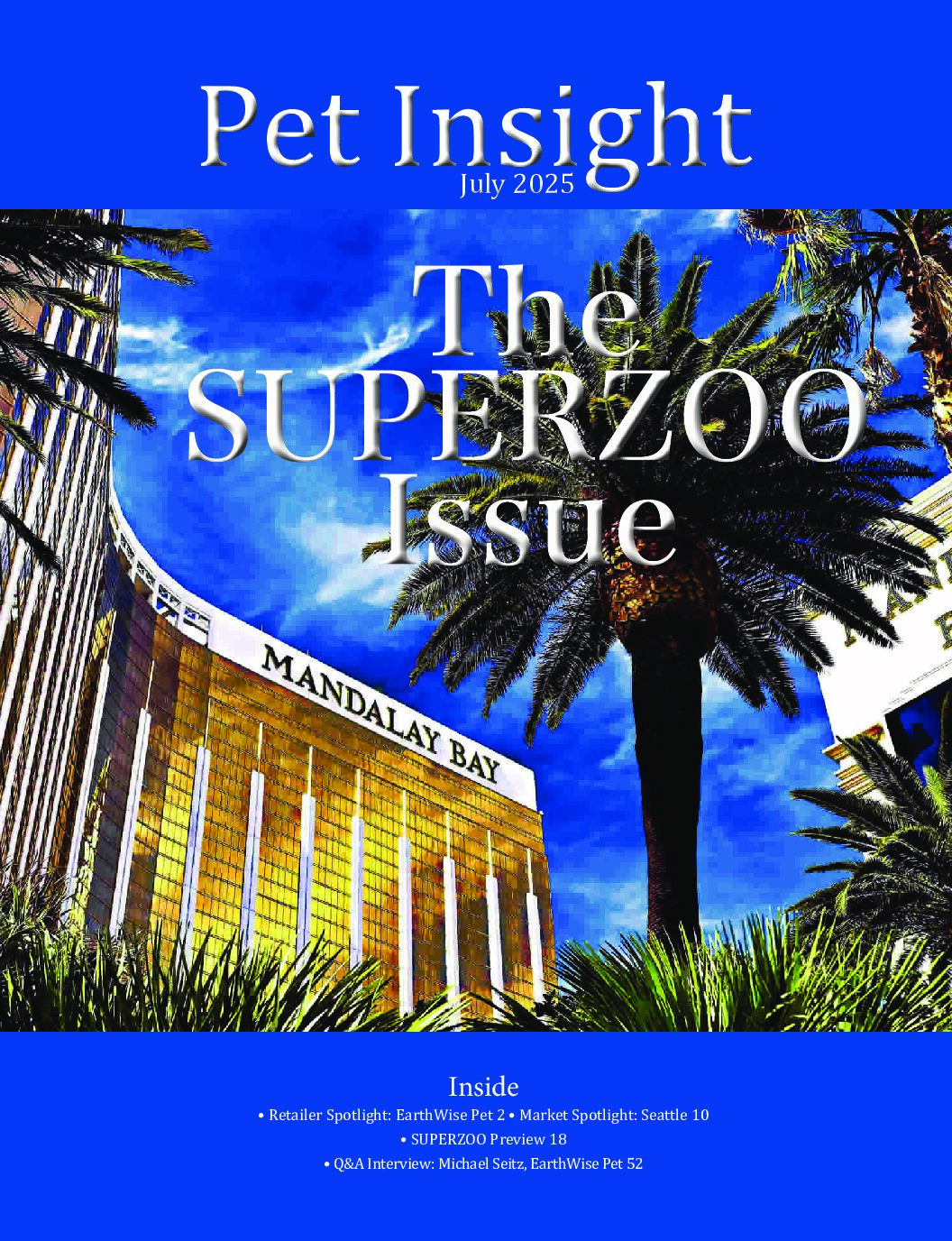Q&A Interview with Michael Seitz, CEO and Chairman, EarthWise Pet and GROOMBAR
What makes working in the pet industry continuously rewarding?
These days it’s definitely, two things; I grew up in an entrepreneurial family so the constant change of the industry is actually really exciting to me that things are constantly changing. I know that some people like stability and for things to stay the same, but that is not inherent to my personality. I love the constant challenges the industry poses, especially recently. It’s the challenges coupled with the primary joy of the industry is the people that are in the industry. It’s the long-term friendships. It’s the fairly close knit environment that the industry is even though it’s massive. There are still a lot of close knit relationships, and I really like that.
During your career, what accomplishments have you been most proud of?
If you’re looking from the outside, definitely a lot of the M&A activity and the growth from a couple of stores to 200. On a personal level, I’m most proud of the management team that we’ve put together. We’ve pulled pieces from a bunch of different organizations and put them together into something pretty special. The biggest accomplishment for me is building the team that we have.
How have the pet specialty channel and pet industry at large evolved in the last five years?
Everybody acknowledges Covid changed everything. It’s interesting to watch; it went from very much a relational industry where people came into stores because they wanted community to Covid making it a necessity for innovation and technology an important and integral part of operating in the industry. If I look at the changes that have happened, there’s this ‘We need to take the service to you’ mentality that needs to happen now vs. just expecting it to come to the store. We had this massive high in 2022, and then we had the lows of 2024 with economic swings and industry swings and massive everything from recalls to consolidation to bankruptcies—it’s been a mess for the last five years. We look at how it’s evolved, and it’s professionalized quite a bit, which has its positives and negatives. It also weeded a lot of organizations that didn’t have the strong footing that they needed to sustain through the ups and downs. There’s been a healthy dose of reality check that’s happened in the last couple of years.
Somebody a long time ago gave me a great piece of advice. We were really young, and we only had 10 stores at the time, and he said: “Mike, I really like what you’re doing, but you haven’t been bloodied yet.” The idea was you had to be battle tested through really difficult times and forced creatively to figure out a way to make it work. That strength of mentality is what everybody is needing and learning out of necessity right now. If I look at the last five years, there was a lot of consolidation, but there were those who did that in a healthy way for the industry and those that did that in a cash grab. You’re seeing the fall out of that, and there’s a little bit of a reset happening.
How would you describe the current state of the pet industry?
I think it’s fragile.
What role do you see AI playing in the pet industry in the coming months?
It will have a large role, and it’s already starting to have a large role in pet services in terms of everything from automation to scheduling to improving customer service levels. In the retail play, I don’t think you’re going to see as much implementation of it except for maybe on the educational level, but I do think it’s going to have a dramatic effect on the services side.
How are recent developments on the distribution side of pet affecting retailers?
Dramatically. That’s the biggest concern everybody is facing right now is who’s next? One of the things that we always look at is diversification of revenue streams. We’re not solely reliant upon one brand. We’re not solely reliant upon one type of revenue stream, but it’s the same type of thing in distribution. You have to hedge your bet, mitigate your risk. You’ll see more companies going to a self-distribution model to protect that. You’ll see more companies going towards more of a regional distributor play, and some of the nationals being affected by that regional shift just because people are trying to have multiple sources for products to protect themselves. You’re going to see fewer exclusivity contracts with manufacturers.
What are the values EarthWise Pet looks for in potential distributor partners?
This has changed a lot over time. It used to be very much price and relationship based. We trust this distributor or this manufacturer, and we’re going to negotiate pricing that makes sense for everybody. But now that shifted to are they on strong financial footing? Are they going to be sustainable? Are we going to be able to use them in a year? There is price sensitivity, but pricing has become less of a focus on vendor usage compared to reliability.
How are topics such as humanization of pets and sustainability shaping the industry?
Humanization of pets hasn’t affected it much more than it has in the past. That has always been the trend for the last 20-plus years. The sustainability push was a much stronger focus before the last several years. There’s been a reset even with sustainability. I’m a huge fan of sustainable sourcing, sustainable business practices, and I’m not seeing as much of a focus on that in recent years that I had seen in the past.
The humanization of pets will always be there, and that’s the natural trend. If you look at childcare and that industry, you can map out what’s going to happen in the pet industry a few years in advance. But if you’re looking at sustainability, these days it’s shifting not to necessarily reliable sourcing in terms of sustainable, eco-friendly sourcing, but now you’re shifting to a sustainable sourcing in terms of am I going to have reliable pricing? And so tariffs are another concern that people have. It’s where is the meat being sourced, not necessarily because it’s eco-friendly or sustainable to the environment, but is it going to actually be available which is an interesting shift in terms of sustainability. Is it a reliable source not necessarily is it sustainable in the best interests of the planet. It’s an unfortunate shift, but it’s a reality that we have to face. Super reliable countries for sourcing such as Canada and Mexico now are in question, and we haven’t questioned North American sourcing maybe ever in the industry. So, it’s really changed.
What are the top challenges pet owners are facing?
The biggest pressure that pet owners are facing is rising costs. There’s a general understanding of that’s just the way things are in terms of what we’re doing to support pet owners in that regard. I mean obviously you have to start looking at alternative options when it comes to consumables. Maybe slight downgrades in quality just to meet budgets that are still quality. There’s a little bit of we have to offer a different price point than what we’ve had to offer in the past because that’s where people are and still be picky and choose products that we believe in that we can feel comfortable selling and not compromising our values, but providing an alternative option that maybe is more affordable.
That’s not just food, that’s everything. Even pet care costs and grooming costs have gone up. Veterinarian costs have skyrocketed. It can be tens of thousands of dollars for dialysis and for a dog with kidney issues, that’s just astronomical. We’ve looked into pet insurance and a lot of other programs to help our pet owners mitigate some of those things. But it’s a challenge.
What are some of the recent developments unfolding at EarthWise Pet, Dee-O-Gee, GROOMBAR and Pet Depot?
We continue to organically grow putting up new stores, but there’s been some significant shifts in our model. We are more services-centric than we used to be. New stores are being built with much larger service departments than in the past. The retail focus has definitely shifted to our certified pet dietician program, and nutrition expertise play more of a role than it does in traditional retail. It’s almost becoming more of a vet retail in a sense that it’s dietician-led retail, and that’s been a pretty significant shift during the last couple of years. We have 1,400 employees across the country that have gone through that training.
We have this philosophy now called “Let us help you buy better” program. Let’s educate you—you don’t have to buy from us—but let us educate you on how to improve the quality of life of your pets through nutrition.
What do you attribute to EarthWise Pet’s continued success?
First and foremost, our underlying tagline is the belief pets are family. With that as our mantra, everything that we do is based around that ideology. Is this consistent with an animal that we care about yearly? Is this consistent with what we would do for them? It’s important to realize pets aren’t humans. There’s often times of this we talked about the humanization of pets earlier, there’s the natural progression of ‘Let’s be respectful, let’s treat our companion pets as part of the family.’ And then there is the misconstrued idea of they are the same as our kids. And they’re not. They have their own needs. They are their own type of animal that needs to be treated as such. So it’s how do we respect this pets are family concept but honoring their core being. They’re dogs. What is the ideal scenario for that breed, for that particular dog to get the highest quality of life they can have, and it’s not treating them like our kid. It’s treating them in a way that’s respectful to the breed and the animal that they are. Everything we do is designed around that.
Given the highly competitive nature of pet retail, what is EarthWise Pet’s strategy to stand out?
How we stand out right now, there are four parts to it: One of them is our usage of technology. We have our own in-house developers, our own in-house AI specialist. We really are building a technology base that can help our messaging to our consumer. Technology and innovation and then the other two would be expertise and service. How do we stand out? Well, we are the go-to place for education. We have our own education program we put together to educate vet staff. We are the experts for nutrition. Veterinarians can refer to us for educational expertise. Then there is the service side. That’s not just offering services; that’s not necessarily a differentiating factor anymore. A lot of businesses offer pet services, but it’s the level of services that we offer. It’s the idea that we care as much about your pets as you do. When they’re in our care, we’re treating them just as you would treat them. We consider them part of our family. That separation of services where it’s not just a groomer doing a groom on a dog, it’s our groomer doing a groom on Fido who they’ve known for years. It’s that level of personalized service. Our grooming departments, we don’t call them grooming departments, we are luxury pet spas. There is a white glove level of this is the special bonding experience your pet gets to have with us.
What has been a success for EarthWise Pet in the last year?
We’ve really ramped up our mobile grooming rollout efforts. We sold out the Chicago metro area for mobile grooming. There will be 42-plus vans in the next several years servicing the Chicago area. There are other metro areas we are about to sign on the dotted line for. It will be the same thing. By the end of this year, we’re probably looking at 50-plus vans that will be on the road, and by the end of next year close to 150 to 200 mobile grooming vans on the road to really bring the services component to the customer.
What are your goals and priorities for EarthWise Pet for 2025?
There are some infrastructure gaps that we are targeting to fill. Some key positions now that we’ve made some shifts in our focus towards the services that we want to shore up. The general goal is to grow our service contribution to franchisees by 20 percent or more during the next 12 months.
Inside
Retailer Spotlight: EarthWise Pet
SUPERZOO Preview: Freeze-Dried Premium Foods
SUPERZOO Preview: Made in the USA
SUPERZOO Preview: Premium Foods
SUPERZOO Preview: Health and Wellness
SUPERZOO Preview: Shampoos and Conditioners
Q&A Interview with Michael Seitz, CEO and Chairman, EarthWise Pet and GROOMBAR




